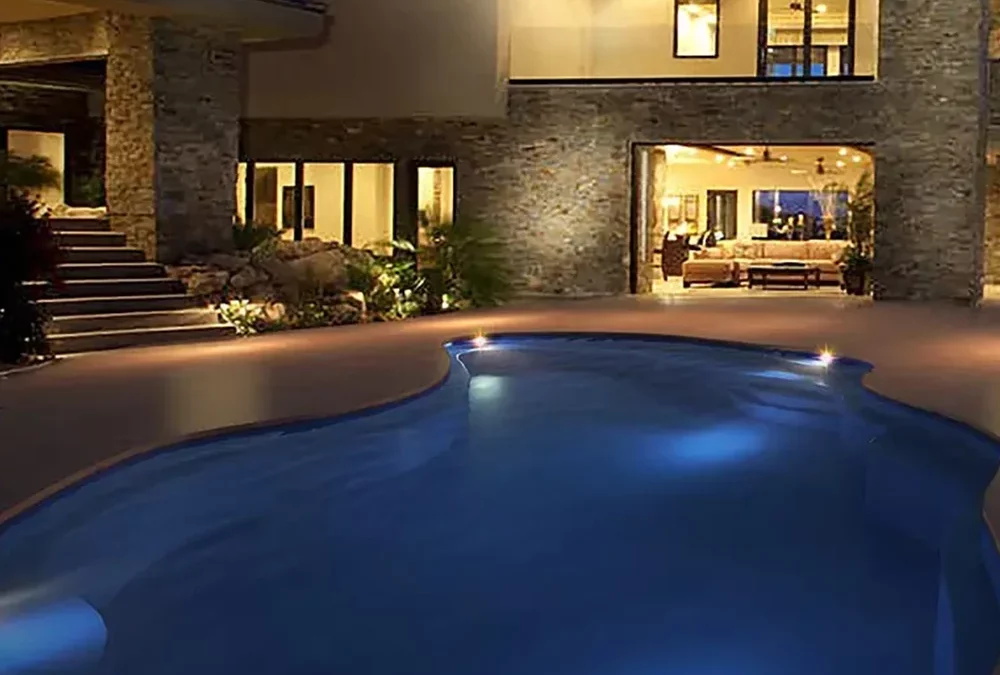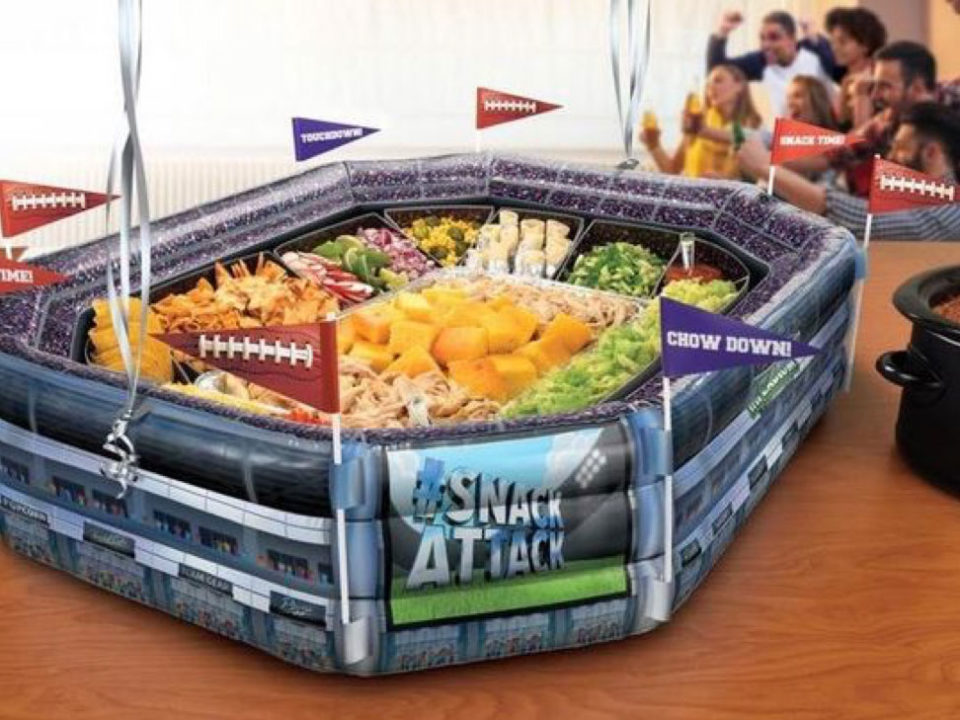
Dive into Wellness: Exploring the Health Benefits of Swimming
December 10, 2023
Average Small Inground Pool Cost in 2024
December 11, 2023Inground pools stand as symbols of leisure and luxury, transforming backyard spaces into serene retreats. However, the decision between gunite vs. fiberglass pools carries significant weight, influencing everything from construction timelines to initial costs and long-term maintenance. This guide aims to unravel the differences between these types of pools in order to help North Carolina homeowners make an informed decision.
What Is a Gunite Pool?
Gunite pools are crafted using a mix of cement, sand, and water applied pneumatically onto a steel framework, resulting in a robust and durable structure. The pool construction process involves a meticulous application of the gunite mixture, allowing for intricate designs and customization. The strength of gunite pools lies in their continuous structure, reinforced by steel, contributing to resilience against potential cracks and structural issues once the foundation is set.
Gunite pools are a type of concrete pool with a mixture that is slightly less stable as it requires more finesse during the pool construction and application process.
What Is a Fiberglass Pool?
Fiberglass pools are constructed using a pre-molded shell made of fiberglass-reinforced plastic, offering a smooth and non-porous surface. The manufacturing process involves creating a pre-formed shell that is then transported to the site and installed in the excavated pool area. Fiberglass pools offer a range of shapes and sizes, catering to various preferences. The durability of fiberglass pools stems from their one-piece design, minimizing the risk of potential vulnerabilities such as leaks.
Fiberglass pools boast faster installation times, lower maintenance requirements, and potentially lower overall costs, making them an attractive option for many homeowners.
Gunite vs. Fiberglass Pools: Installation Timelines
The installation timeline is a critical factor that often influences the decision-making process when choosing between gunite and fiberglass pools. Understanding the differences in construction time is essential for homeowners seeking a balance between their desire for a beautiful pool and the convenience of a swift installation.
Gunite Pool Construction Timeline
The construction of a gunite pool typically involves several stages that contribute to a longer installation timeline compared to fiberglass. After excavation, the steel framework is meticulously placed, and the gunite mixture is pneumatically applied. Following this, there is a curing period during which the concrete sets. The finishing touches, such as tiling and coping, add to the overall timeline. Depending on factors such as weather, complexity of design, and site conditions, the construction of a gunite pool can take several weeks to months. While the craftsmanship and customization possibilities are vast, the extended timeline may be a consideration for those eager to enjoy their pool sooner.
Fiberglass Pool Installation Timeline
Fiberglass pools are celebrated for their relatively rapid installation compared to gunite. The manufacturing process of the fiberglass shell occurs off-site, allowing for parallel work on the excavation and site preparation. Once the pre-formed shell arrives at the site, it is placed into the excavated area. The simplicity and speed of this installation process mean that a fiberglass pool can often be ready for water in a matter of days to a few weeks. This quicker turnaround is particularly advantageous for homeowners who prioritize a swift transformation of their outdoor space and want to start enjoying their pool sooner rather than later.
Gunite vs. Fiberglass Pools: Cost
The cost of installing a pool is a significant consideration for homeowners, and understanding the differences between gunite and fiberglass pools in terms of expenses is crucial for making an informed decision.
Gunite Pool Cost
Gunite pools often come with a higher upfront cost compared to fiberglass pools. The construction process involves a more labor-intensive and time-consuming approach, requiring skilled professionals for the application of the gunite mixture and the intricate detailing that follows. The customization options, which allow for unique shapes and features, contribute to the overall expense. Additional costs may include finishes such as tiling, coping, and decking. While the initial investment can be substantial, many homeowners view it as a worthwhile expense for the bespoke and luxurious pool they envision.
Fiberglass Pool Cost
Fiberglass pools are generally more cost-effective in terms of both installation and long-term maintenance. The pre-formed fiberglass shell is manufactured off-site, streamlining the construction process and reducing labor requirements. The efficient installation process translates to lower labor costs and shorter construction timelines, contributing to overall affordability. Additionally, fiberglass pools have a smooth, non-porous surface that resists algae growth and stains, reducing the need for extensive chemical treatments and maintenance costs over time. While customization options may be somewhat limited compared to gunite, the cost-effectiveness of fiberglass makes it an attractive option for budget-conscious homeowners.
Gunite vs. Fiberglass Pools: Design
The design possibilities are a key consideration for homeowners when choosing between gunite and fiberglass pools, as they seek to create a visually stunning and personalized aquatic retreat in their backyard.
Gunite Pool Design
Gunite pools are celebrated for their unparalleled design flexibility and customization options. The application of the gunite mixture is a meticulous process that allows for the creation of unique shapes, curves, and intricate features. Homeowners can work closely with pool designers to craft a bespoke pool that complements the aesthetics of their outdoor space and aligns with their vision. Whether it’s a free-form lagoon, a sleek geometric design, or an integration of various water features, gunite pools provide a canvas for creativity. The versatility of gunite allows for the incorporation of personalized elements, such as attached spas, waterfalls, and custom tiling, making each pool a one-of-a-kind masterpiece. While the design possibilities are vast, it’s important to note that the intricacies of gunite pool design may come with a longer construction timeline.
Fiberglass Pool Design
Fiberglass pools, while offering design options, come with certain limitations compared to gunite. The manufacturing process involves creating pre-formed shells off-site, which limits flexibility in terms of unique shapes and intricate detailing. However, fiberglass pools still provide a range of sizes and shapes to cater to different preferences. Homeowners can choose from a variety of pool shapes, including classic rectangles, kidney shapes, and more. The smooth and non-porous surface of fiberglass pools lends itself well to contemporary and modern designs. While the customization options may not match the extensive possibilities of gunite, fiberglass pools make up for it with their quicker installation process, allowing homeowners to enjoy their pools sooner.
Gunite vs. Fiberglass Pools: Maintenance
The maintenance requirements of a swimming pool are a crucial consideration for homeowners, influencing the long-term enjoyment and cost of ownership. When comparing gunite and fiberglass pools, there are distinct differences in maintenance needs.
Gunite Pool Care
Gunite pools, while durable and customizable, demand regular and attentive maintenance to preserve their aesthetic appeal and water quality. The porous nature of the gunite surface can make these pools more susceptible to algae growth and staining. As a result, homeowners with gunite pools must adhere to a vigilant cleaning regimen, which includes brushing the pool walls and floor, vacuuming, and monitoring chemical levels to prevent algae blooms. Additionally, the grout lines in between tiles may require periodic attention to prevent the buildup of dirt and potential discoloration. While gunite pools offer extensive design possibilities, they also necessitate a more hands-on and time-consuming approach to maintenance.
Fiberglass Pool Care
Fiberglass pools are known for their low-maintenance characteristics, making them an attractive option for homeowners seeking a more straightforward upkeep routine. The smooth, non-porous surface of fiberglass inhibits algae growth and minimizes the risk of staining, reducing the need for frequent brushing and cleaning. The streamlined surface also makes it more challenging for bacteria and debris to cling to the pool walls. This inherent resistance to common maintenance issues results in less effort required to maintain water quality. While occasional cleaning and monitoring of chemical levels are still necessary, fiberglass pools generally offer a more time-efficient and user-friendly maintenance experience.
Final Word: Gunite vs. Fiberglass Pools
The choice between a gunite pool and a fiberglass pool is often influenced significantly by two key factors: design preferences and budget considerations.
- Budget
- Design
Gunite pools tend to be much more of an investment but do offer more customization options when compared to fiberglass pools. The decision between a gunite pool and a fiberglass pool often hinges on finding the right balance between design preferences and budget considerations.
Homeowners with a passion for unique, customized designs may lean towards gunite or concrete pools – if the budget allows. Those prioritizing efficiency, faster installation, low-maintenance care, and cost-effectiveness may find that fiberglass pools align more closely with their wants.
Ultimately, the choice reflects individual priorities and the desire to create a pool that not only enhances the outdoor space but also aligns with lifestyle and financial considerations. If you’re ready to dive in, give us a call or schedule a consultation with our North Carolina pool contractors. You can also stop by our pool design center in Benson to speak with us in person.



